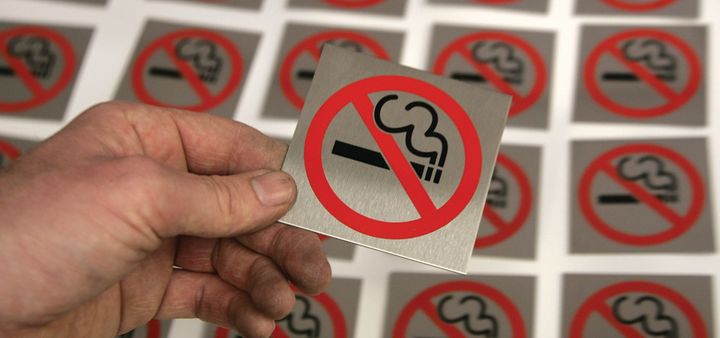- Saturday, 7 February 2026
World No Tobacco Day
Annually, over 27,000 people die from consumption of tobacco products in country
Kathmandu, May 31 (RSS): More than 27,000 people die annually in Nepal due to illnesses related to tobacco consumption, according to data from the National Health Education, Information and Communication Center.
The Center's Director Sunil Raj
Sharma in a statement today confirmed the death of 27,137 people every year due to the consumption of tobacco products.
Globally, over 8 million people die from the consumption of tobacco products every year. Of the death toll, 7 million died from firsthand tobacco consumption and 1.2 million from secondhand smoke exposure.
Consumption of tobacco products
causes cancer and various diseases including heart and respiratory diseases and
diabetes.
To minimize the effects of tobacco
products, various acts, laws and directives relating to their control and
regulation have been made in the country.
"Various awareness campaigns
and programs have been launched to ensure good health of people, decrease the
consumption of tobacco products and help people quit these products. However,
challenges have remained due to interference of tobacco industries and their
strategy," he said.
May 31 each year is celebrated as
World No Tobacco Day and the theme of the day for this year is ‘Protect the
Environment’ as it aims to highlight the tobacco threat to the environment,
raising public awareness about the environmental impact of tobacco.
In the press statement, Sharma
reminded the ill effects of tobacco consumption not only on public health but
also in the environment as well, suggesting that quitting the use of tobacco is
the best way to avoid the health and environmental consequences of its use.
He stressed the need of launching a no tobacco campaign throughout the year to discourage its cultivation,
production, and consumption and minimize the environmental impacts of tobacco. The whole tobacco cycle - cultivation, production, consumption and wastes it
generates - pollutes water resources, soil and its fertility and the entire
atmosphere. Tobacco cultivation leads to deforestation and it will degrade the
soil fertility as well, it is said.
Toxic gases and smoke to be
generated from tobacco production and consumption are one of the reasons fueling the greenhouse gas effect, according to Sharma who underlines the need of
discouraging its production and consumption as well. Of the total global
production of tobacco, 90 percent of production takes place in developing
countries.
Though tobacco production is
considered the means of better income in low and middle-income countries,
its future consequences as are devastating. It may lead to food insecurity,
poverty, health hazards, and environmental degradation.



-original-thumb.jpg)




-square-thumb.jpg)




-original-thumb.jpg)